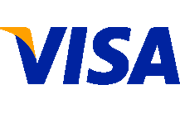Expanded Form 1099-MISC Reporting:
A Pilot Demonstration
Feasibility tests are important. Many ideas seem logical and well-thought out, only to show fatal flaws when implemented under real conditions, even on a small scale as pilot projects. Demonstrating feasibility and uncovering hazards and side effects are the raison d'etre of pilot studies, innovation demonstration programs, and medical trials. Sometimes such experiments are a success, sometimes not.
In a previous posting I noted that the dramatic expansion of transactional reporting in the recently enacted as Section 9006 of the Patient Protection and Affordable Care Act (Public Law 111-148). This dramatic increase in recordkeeping has consequences on business operations of all sizes. Large enterprises have serious concerns about correlating received Forms 1099-MISC for goods and services sold; as well as with correlating actual small, previously exempt from reporting, disbursements by many different employees into a single account for reporting on Form 1099-MISC; small businesses are faced with a serious increase in record keeping and aggregation. There are differences of opinion as to how much effort will be required to meet the new requirements.
Ideally, a study demonstrates feasibility without doing harm. Requiring reporting from some firms and not others creates a competitive disadvantage between those firms in the study and those not included. Introducing regulations without first doing a pilot phase runs the risk of unintended consequences.
A study cohort of “enterprises” large enough to demonstrate the feasibility of the change is needed. Ideally, one whose organizations would not be put at a competitive disadvantage with similarly situated enterprises. Thus, the impact of the reporting requirements could be evaluated with safety.
Such a cohort exists. Each of cohort organization has several employees, which makes them larger than many small businesses. For larger predictable expenses, the organizations are part of a larger buying organization, yet each has significant day-to-day expenses made with credit cards and petty cash by different employees. From a study perspective, there is even a good chance that these organizations possess the historical records to measure the incremental overhead of different aspects of these filing requirements.
The United States Congress consists of 100 Senators (two from each state) and 435 Representatives (proportioned among the 50 states by population). Each member of Congress has both an office, and a separately accountable political campaign organization, accountable to the Federal Elections Commission.
Perhaps Congress would elect to exercise leadership on this issue and demonstrate the feasibility of the expanded reporting on Forms 1099-MISC mandated in Section 9006 of the Patient Protection and Affordable Care Act. The 535 Congressional offices and corresponding political organizations are a large enough sample to illustrate many of the problems that such reporting will require. A retrospective experiment would also be possible, to see if the existing records are an adequate dataset to produce the anticipated filings.
If the existing records (excluding EIN, which is not presently required for purchases of goods) are adequate for aggregating expenditures and producing the newly required Forms 1099-MISC, the experiment will be a success. If the records currently required are not adequate, the trial will be a failure, and legislation to repeal Section 9006 should be enacted.
Legislation to accomplish the repeal of the expanded Forms 1099-MISC reporting is already before the House Ways and Means Committee, chaired by by Representative Sander Levin (D-MI). The Small Business Paperwork Reduction Act (H.R. 5141), introduced by Representative Daniel Lungren (R-CA), repeals the changes in reporting requirements using Forms 1099-MISC.
Similarly, if the work of collecting Payee information (including EIN) for every purchase is as significant as I believe, the trial will also have failed and the reporting expansion should be repealed. Compliance measures that incur reporting-related costs that are a significant percentage of the amount reported create an administrative burden in excess of the taxes realized by the reporting.











![Validate my Atom 1.0 feed [Valid Atom 1.0]](http://images.rlgsc.com/logos/valid-atom.png)
![Validate my RSS feed [Valid RSS]](http://images.rlgsc.com/logos/valid-rss.png)

